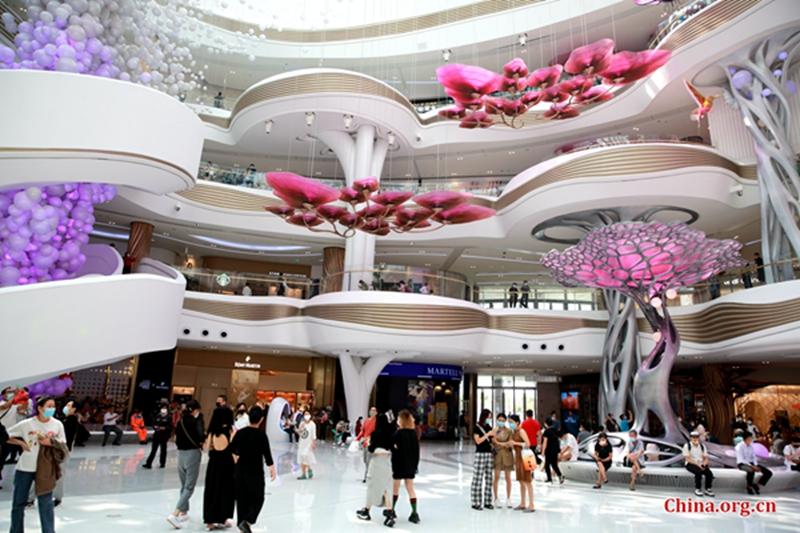China is actively promoting the development of local duty-free markets, which is expected to offer significant investment opportunities, according to an official with China's Ministry of Commerce.
Speaking at an online exchange conference between China and the UAE duty-free industry on Feb. 20, Li Yong, deputy director of the Investment Promotion Agency of the Ministry of Commerce, highlighted China's enormous consumption potential and the recovery of its duty-free industry.
Li noted that China's consumer structure continues to upgrade in the post-COVID era, and the long-term trend of consumption development remains positive.
As China moves faster to create double development dynamic with the domestic economy as the mainstay and the domestic economy and international engagement providing mutual reinforcement, Li believed that the approach will provide broader market and development opportunities for companies from all countries.
Li also summarized China's major duty-free policies since 2020, including the construction of the Hainan Free Trade Port, which is breaking new ground in China's luxury market.

Haikou International Duty Free Shopping Complex opened on Oct. 28, 2022, in Haikou, the capital of south China's island province of Hainan. [Photo by Wu Xiaoshan/China.org.cn]
In January, while delivering a government work report, Feng Fei, the governor of Hainan, stated that he expects to see the province's offshore duty-free sales exceed 80 billion yuan ($11.6 billion) in 2023.
The offshore duty-free shopping market in Hainan saw a rosy start during this Spring Festival holiday. According to data from the Department of Commerce of Hainan Province, the sales of 12 local offshore duty-free shops reached 2.57 billion yuan from Jan. 21-27, up 20.69% compared with the Spring Festival holiday period in 2022.
Chang Zhujun, executive deputy general manager of China Duty Free Group, the world's leading travel retailer, stated that although the tourism and duty-free industries had faced a severe downturn during the pandemic, their recovery is now inevitable thanks to the optimization of the COVID-19 response.
Chang also noted the luxury industry's remarkable resilience during the pandemic. Although China's luxury goods market contracted by 10% in 2022, ending five years of continuous growth, he stated that the decline is temporary and will not affect long-term development.
He predicted that Chinese consumers would regain their pre-pandemic status by 2030, becoming the primary purchasers of luxury goods and accounting for 38%-40% of global purchases.
The view that China remains an important growth engine for the luxury market is also confirmed in KPMG's latest report "Luxury Redefined: Building Trust With Chinese Consumers Through Authenticity and Integrity."
Chang believed that Chinese brands in travel retail will seize the opportunity to expand and occupy more market share, which will contribute to the development of the global duty-free industry.














